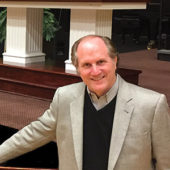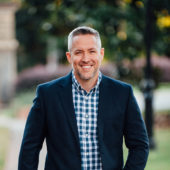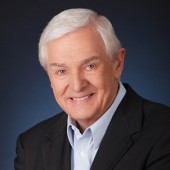Part of my job is to help people plan their final affairs. A number of people who come to me are terminally ill. These folks fall into two groups—the terminally ill, and the terminally ill with regrets. Mind you, I don’t ask them if they have regrets. They seem to need to tell them to me. Their regrets weigh heavily on their hearts. They say things like, “I wish I had spent more time with my parents.” “I wish I hadn’t wasted my life on things that didn’t matter.” “I regret some of the harsh things I’ve said and done, especially to my family.” “If only I could do it over again, I’d do it differently.” No one has expressed a wish to have spent more hours at work or spent more dollars collecting things like cars and houses. Not one person has told me they wished they devoted more time and money no their own pleasures.
Instead, they regret three aspects of their lives. First, they wish they had put their resources into concerns that mattered. They wish that their lives counted for something positive, even something small. They wish they’d sponsored an immigrant, tutored a child, coached a sport, or helped someone file their taxes. They say things like, “I wish that I’d stuck up for people who were being treated unfairly.” They regret their own dishonesties. They look back and wish that they had made the world in some small way fairer and more just.
Next, they wish they had shown more kindness and forgiveness. They regret not spending more time with their kids, not really loving their neighbors, not devoting more emotional energy to people who needed them. In this age of constant competition for my attention, they wish they had connected themselves more to the people closest to them and less to the media around them. Many of these terminally ill find themselves feeling unattached to the ones they now need the most. They are at a point in life when they will surely need kindness and understanding, and they wish they had shown more of it to those around them.
Third, they wish they had focused more time on their own spiritual journey. Facing a terminal illness, they realize that the strength and assurance they need is absent without a connection to God. They also often realize that like it or not, they are going to die and confront the truth of the existence of God. This scares them. Their conscious pricks their hearts and reminds them of all the times when in arrogance or self-centeredness they lived life with little regard for others and little concern for their own souls.
It has been said that the smallest package in the world is a man all wrapped up in himself. That’s what the terminally ill regret. They wish they had looked down to those in need, looked out to those in isolation, and looked up to the One who created them. Instead, they face death with fear, knowing that they lived their lives as very small packages. When they share their regrets with me, I am humbled and convicted.
Death is the ultimate leveler. My wealth or poverty, my intellect or dullness, my strength or weakness, will all be gone. It will not matter whether I’m beautiful or unappealing, young or old, a great adventurer or a lowly hermit. Upon death, every human will stand alone and empty-handed before God.
I once heard an oncologist say that the only doctor who can tell me I have a terminal illness is a medical examiner. That has stuck in my mind. I repeat it to these terminal ill clients, and they are comforted. As long as we have breath, we’re not dead yet. And being not dead, we still have the capacity to influence this world for change, to extend compassion to those around us, and to reach out to God.
C.T. Studd wrote, “Only one life, ‘twill soon be past. Only what’s done for Christ will last.” Whether they are people of faith or not, whether they are churched or unchurched, regardless of their religious background or affiliation, the terminally ill with regrets instinctively understand this truth. All we leave behind are the people our lives have touched. By telling me their regrets, the terminally ill remind me that the best way to be at peace when facing death is to have lived a life that does justly, loves mercy, and walks humbly with God. Because in the end, when all is said and done, nothing else will matter.


















